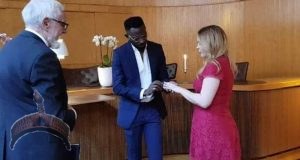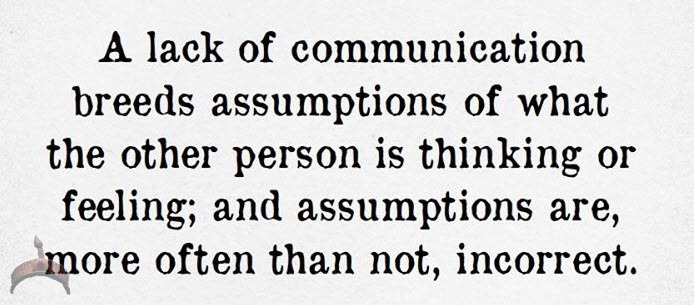This message is for young people.
And those young at heart.
Do Africans have original ideas about love and romance?
Is it Cupid with the bow shooting an arrow to pierce a heart?
Is there an African logic of love?
If so, how is this original idea of love expressed?
The answer to the first question is a resounding “Yes!”
“Love” in Yoruba is “Ìfẹ́.”
And to understand how this logic is expressed as an original concept in Yoruba, you could look closely at the word “Ìfẹ́.”
Ìfẹ́ is from fẹ́.
Say Ìfẹ́ and fẹ́ loud, and watch the way your lips are formed.
To say “Fẹ́” you must hold your lips together and blow air out forcefully.
It is not a passive action: it is an active, intentional and deliberate blowing of air from you to say “fẹ́.”
Fẹ́ is realted, therefore, to “afẹ́fẹ́,” meaning breeze, air.
Afẹ́fẹ́ is a repetition of fẹ́.
You must blow it from you to the world, the one you love, the person of your affection.
Ìfẹ́, that is love, is an active expression, and not something passive.
You must pronounce it with force, and express it like the wind is blowing.
Afẹ́fẹ́, when you pronounce it, moves the wind forcefully from your lips.
Say afẹ́fẹ́. You will see the wind as it moves forcefully from your lips.
You cannot see afẹ́fẹ́ (the wind) itself, but you can see its effect when it is blowing.
Say Ìfẹ́. You will see the wind as it moves forcefully from your lips.
You cannot see Ìfẹ́ (love) itself, but you can see its effect when it is blowing.
Ìfẹ́ (love) is like afẹ́fẹ́ (breeze, wind).
You must blow Ìfẹ́ or love out forcefully and purposefully, like the breeze, from you to your love.
It is not just passive.
It is by action that must be felt,
African Logic of Love
This message is for young people.
And those young at heart.
Do Africans have original ideas about love and romance?
Is it Cupid with the bow shooting an arrow to pierce a heart?
Is there an African logic of love?
If so, how is this original idea of love expressed?
The answer to the first question is a resounding “Yes!”
“Love” in Yoruba is “Ìfẹ́.”
And to understand how this logic is expressed as an original concept in Yoruba, you could look closely at the word “Ìfẹ́.”
Ìfẹ́ is from fẹ́.
Say Ìfẹ́ and fẹ́ loud, and watch the way your lips are formed.
To say “Fẹ́” you must hold your lips together and blow air out forcefully.
It is not a passive action: it is an active, intentional and deliberate blowing of air from you to say “fẹ́.”
Fẹ́ is realted, therefore, to “afẹ́fẹ́,” meaning breeze, air.
Afẹ́fẹ́ is a repetition of fẹ́.
You must blow it from you to the world, the one you love, the person of your affection.
Ìfẹ́, that is love, is an active expression, and not something passive.
You must pronounce it with force, and express it like the wind is blowing.
Afẹ́fẹ́, when you pronounce it, moves the wind forcefully from your lips.
Say afẹ́fẹ́. You will see the wind as it moves forcefully from your lips.
You cannot see afẹ́fẹ́ (the wind) itself, but you can see its effect when it is blowing.
Say Ìfẹ́. You will see the wind as it moves forcefully from your lips.
You cannot see Ìfẹ́ (love) itself, but you can see its effect when it is blowing.
Ìfẹ́ (love) is like afẹ́fẹ́ (breeze, wind).
You must blow Ìfẹ́ or love out forcefully and purposefully, like the breeze, from you to your love.
It is not just passive.
It is by action that must be felt, as the trees feel the breeze when it is blowing.
That is the African logic of love, of romance.
Take it and use it.
It is different from Cupid shooting an arrow through a heart.
It is a romantic breeze that leaves the lips of one lover and soothes the spirit of the other lover.
Make your love feel like the trees feel the breeze.
This message is for young people.
And those young at heart.
See less
as the trees feel the breeze when it is blowing.
That is the African logic of love, of romance.
Take it and use it.
It is different from Cupid shooting an arrow through a heart.
It is a romantic breeze that leaves the lips of one lover and soothes the spirit of the other lover.
Make your love feel like the trees feel the breeze.
This message is for young people.
And those young at heart
Prof. Moyo Okediji
 Ọmọ Oòduà Naija Gist | News From Nigeria | Entertainment gist Nigeria|Networking|News.. Visit for Nigeria breaking news , Nigerian Movies , Naija music , Jobs In Nigeria , Naija News , Nollywood, Gist and more
Ọmọ Oòduà Naija Gist | News From Nigeria | Entertainment gist Nigeria|Networking|News.. Visit for Nigeria breaking news , Nigerian Movies , Naija music , Jobs In Nigeria , Naija News , Nollywood, Gist and more









